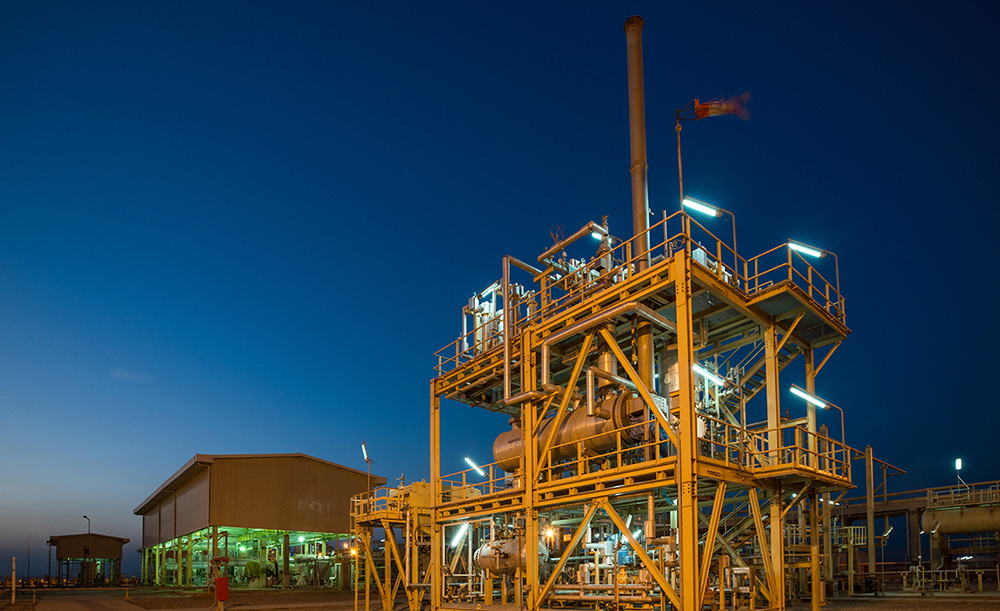Iran: Oil & Gas Sector Most Conducive for Business

EghtesadOnline: The research arm of Iran’s Parliament has conducted a first-of-its-kind domestic investment security study, finding among other things that businesspeople active in the crude oil and natural gas sector have the highest perception of investment security among all sectors.
The study, published on the official website of Majlis Research Center, is the first evaluation of investment security index in Iran using the opinion of business representatives. It divides its results on the basis of provinces and business sectors, and has been conducted for the final quarter of the previous fiscal year that ended on March 20, 2018.
It first outlines a definition of investment security and says that it is fully realized once macroeconomic indicators such as inflation and foreign exchange rates are stable or predictable, regulations and executive decisions are clear, and in case they change, those changes are announced to everyone concerned within a reasonable time before implementation.
Furthermore, the study states that transparency in public administration must be realized, relevant economic data must be accessible to all transparently, lives and assets of all citizens must be safeguarded, ownership rights must be clearly defined and guaranteed, judiciary and law enforcement must be effective and responsive, and a culture of integrity and honesty must prevail among business hubs, Financial Tribune reported.
Based on the MRC study, Iran’s investment security indicator for last year’s Q4 was equal to 5.98 out of 10, with 10 being the worst scenario.
The think tank points out that this figure means nothing on its own, as it serves as a benchmark to be compared with numbers coming out in next seasons to show a rising or falling trajectory.
To get to that number, the research center evaluated seven indicators: 1) definition and guarantee of ownership rights, including seven components such as trust toward the judicial process and full and timely implementation of judicial ruling; 2) macroeconomic stability comprising of three components, namely raw material price stability, consumer inflation stability and currency rate stability; 3) stability and predictability of executive regulations, comprising four components, including stability of regulations green lit by the parliament or the Cabinet; 4) administrative transparency and health, formed by four components, including free and public access to information and decisions of officials; 5) culture of integrity and honesty shaped by nine components, including existence of fraud or cheating in markets and percentage of bounced checks; 6) safety of citizens’ lives and assets, comprised of eight components, including financial theft; and 7) government performance, comprising three components, including business disruption due to new foreign sanctions.
Results of the study showed that during last year’s Q4, businesspeople perceived the performance of officials in terms of their commitments, the performance of provincial and local officials in terms of their economic commitments, and collusion in government entities to be the worst indicators exerting a negative influence on the country’s investment security.
On the other hand, they perceived disruption of business due to foreign sanctions, financial theft (cash money, goods, equipment and machineries) and distribution of smuggled goods to the detriment of a portion of businesspeople active in the market to be the least hurtful indicators in the aforesaid period.
Provincial Trends
MRC results also found that during last year’s Q4, businesspeople in the provinces of Alborz, Tehran and Chaharmahal-Bakhtiari had the worst evaluation of investment security in their provinces while those in Ardabil, Markazi and Yazd had the most positive perception.
After all the data were amalgamated, it emerged that the provinces of South Khorasan, Bushehr, Zanjan, Hormozgan and Ardabil were the worst performing in terms of investment security indicators while Tehran, Alborz, Charmahal-Bakhtiari and Kohgilouyeh-Boyerahmad registered the best performance.
“These results indicate a significant gap between the perception of businesspeople surveyed in this research and Iran’s economic figures,” MRC stated, adding that a part of this gap is expected to be closed after the number of participants increase in future research.
According to the MRC study, businesspeople active in the crude oil and natural gas sector had the highest perception of investment security and were followed by the water and electricity sector. People working in the industries, buildings and mining (excluding oil and gas) sectors had the worst perception of investment security.
In conclusion, the parliamentary think tank advised officials both at the national and local levels to disseminate the indicators of the research in order to gradually improve them.


